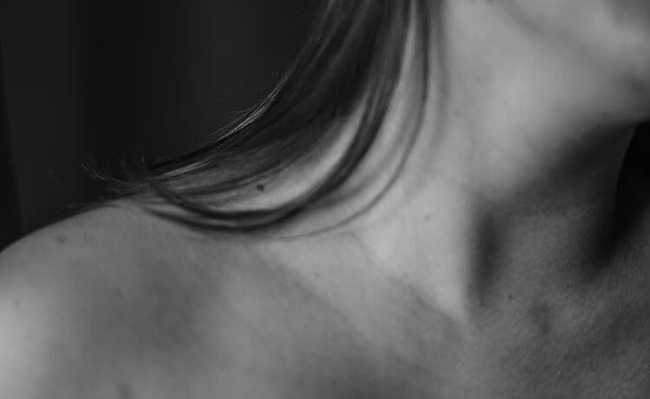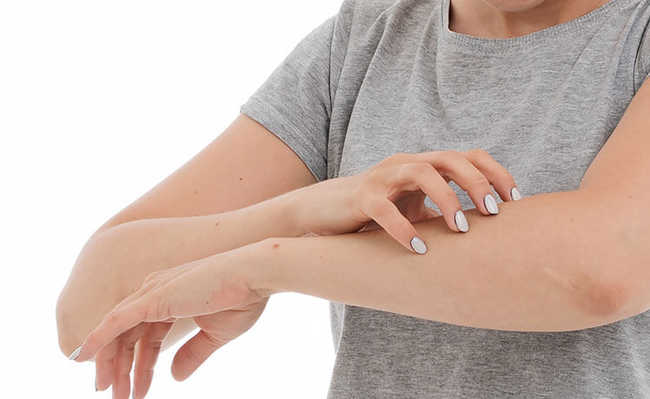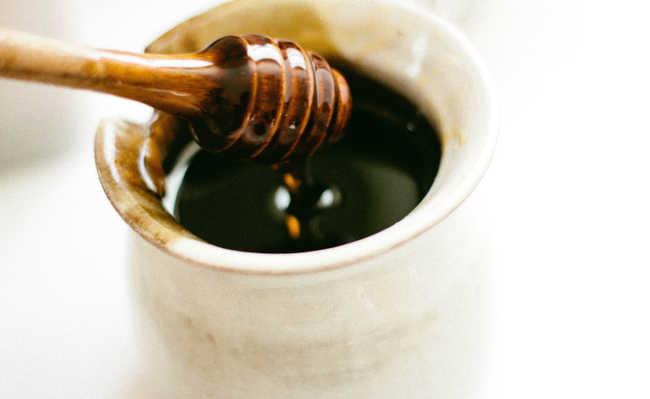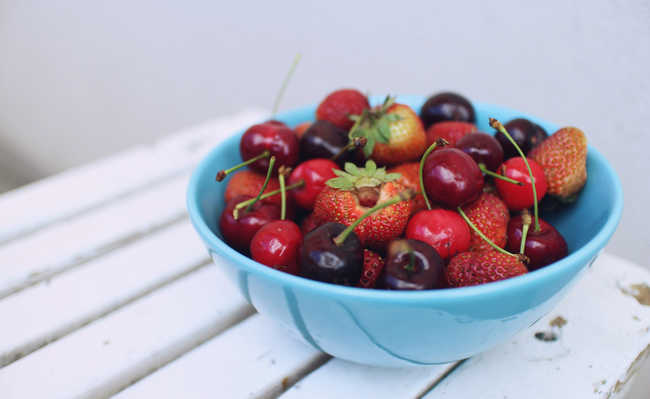Spots on the skin? Check out natural tips for the problem
Natural methods are indicated to remove skin blemishes from the body and face, but understanding their origin and how to avoid them is also important

Image: Noah Buscher on Unsplash
Having blemishes on your face is completely normal and happens for many reasons. However, these blemishes can end up bothering some people, who turn to cosmetics and other industrialized beauty products to help remove blemishes from their skin. These items usually contain substances that are harmful to human health and the environment - as pointed out in the article "Know the main substances that should be avoided in cosmetics and hygiene products".
There are natural and affordable alternatives that help to reduce and remove blemishes from the face. Check below the reasons that lead to the appearance, how to avoid and how to remove blemishes from the face and skin as a whole. The methods listed are general-purpose treatments and may not be suitable for your skin type, so it is extremely important to consult a dermatologist before trying any of the natural remedies below. Ask if treatment is possible in your specific case.
Causes of skin blemishes
There are several reasons for the appearance of blemishes on the skin of the body and face. The main reason is exposure to the sun, which is why dermatologists emphasize the need to use sunscreen daily. Among other causes, it is possible to highlight:
- Hormonal imbalance;
- Pregnancy;
- Medication such as antibiotics or contraceptives;
- Vitamin deficiency;
- Stress;
- Lack of sleep.
How to remove facial blemishes
Lemon
Lemon is rich in vitamin C, which triggers collagen production and keeps the skin firm and supple, as well as clearing impurities and stimulating the formation of new cells. All of this can lighten the blemishes on your skin, as well as being easy to apply.
However, some care is very necessary. It is recommended that people with black or darker skin consult a dermatologist before applying lemon juice to the skin. The skin melanin, more present in people with black skin, in contact with lemon juice, can even increase the blemishes. It is also necessary to emphasize that, under no circumstances, expose the region to the sun after application, as this can cause severe burns. Do not apply to open wounds, cuts or other bruises. Always wash your skin thoroughly after applying the lemon.
There are two main ways to remove skin blemishes with lemon.
Lemon juice
- Squeeze the juice out of a lemon, put some of the juice on a piece of cotton and rub it into the skin. For sensitive skin, dilute the juice with water, honey or rose water.
- Avoid eyes, bruises and cuts;
- Allow to dry and then rinse the applied area with water;
- Apply for at least two weeks to get the desired result.
To avoid dryness, itching or redness, apply moisturizer after each application.
lemon, honey and milk
- Wash your face;
- Mix lemon, honey and milk in a 1:2:3 ratio, respectively;
- Stir until consistency;
- Apply the mask to clean skin. Avoid your eyes and the skin around you;
- Wait 30 minutes and rinse your face with warm water.
Lemon juice will clean pores; honey and milk will keep the skin on your face smoother and more relaxed. Results should appear after four to five applications.
Aloe Vera or Aloe
THE aloe vera, also called aloe vera, is a plant full of uses and benefits. It can be used to make homemade toothpaste, moisturizing creams and makeup removers. As pointed out in the article "18 natural remedies to grow at home", its gel has 96% water and 4% active ingredients such as amino acids and enzymes, which nourish damaged skin.
Aloe gel has antioxidants and polysaccharides that stimulate the growth of new cells and reduce the growth of skin blemishes, helping to lighten and cleanse the skin. Its use when removing skin blemishes is simple.
Ingredients
- Aloe leaf.
Method of preparation
- Remove the gel from the aloe leaf;
- Apply to the skin;
- Leave on for 20 minutes;
- Wash with cold water;
- Repeat twice a day.
Potato
Although its preparation as a frying helps increase the oiliness of the skin and the formation of pimples, raw potatoes are great. It has enzymes that act as a whitening agent for facial blemishes.
- Cut the potato into slices, the amount varies with your taste;
- Rub the slices at the spot of stains. If you want, take the juice from the potato and rub it over your face with a piece of cotton;
- Hold for ten minutes and rinse.
It is recommended to test the application of potato juice on a small part of the skin to check for possible allergic reactions to the components.
Cucumber
Well known for being placed in the eyes in facial treatments, cucumber contains vitamins A, C and E, in addition to minerals such as calcium, potassium, magnesium, phosphorus and amino acids that preserve the skin.
Cut the cucumber into strips and rub on the spot where the blemishes are located or even on the face in general. This way, in addition to taking care of facial blemishes, you help your body to remove scars from acne and also prevent the appearance of new pimples.
Oils
Some oils have components capable of reducing and removing blemishes from the skin. It is important to check the origin and always look for 100% natural and pure oils. Make sure they have no components harmful to health and stay away from synthetic and industrialized products. To learn more, check out the article "Vegetable oils: know the benefits and cosmetic properties".
Almond oil
It acts as a whitening agent, as it has essential fats that will keep your skin hydrated and healthy. It is considered a good moisturizer for the skin, especially for those with oily skin, as it has fatty acids that help dissolve sebum, an oil that the skin produces and that is related to the appearance of pimples.
Spend a few drops on your cleansed face every day before bed.
Coconut oil
Coconut oil is already well known for its health, aesthetic and well-being benefits. As mentioned in the article "Coconut oil: discover the various benefits and prepare it at home", it supports the skin's natural balance, moisturizing, smoothing and reducing blemishes.
Just apply it to the desired location twice a day. If you have oily skin or skin that tends to sweat more often, washing and exfoliating after application is recommended.
Olive oil
Apply a few drops of extra virgin olive oil to the spot and massage. It may sound strange, but olive oil has anti-inflammatory compounds, antioxidants and other nutrients that keep your skin clean and blemish-free.
It is important to emphasize that the oil used must be extra virgin, preferably from a reliable source, otherwise its use may cause unwanted reactions.
jojoba oil
It is rich in antioxidants, refreshes and rejuvenates the skin. It is easily absorbed as it is similar to the oil naturally produced by the body, in addition to helping to control oiliness and skin regeneration. To see other benefits of jojoba oil, check out the article "Jojoba oil: what it is for and benefits".
Apply a few drops and let it sit overnight. Don't overdo it too much or too much oil can clog your pores. If your skin is very oily, wash after a few minutes of application.
eucalyptus oil
Eucalyptus essential oil has antimicrobial, antiseptic, bactericidal and anti-inflammatory components.
Essential oils are somewhat volatile, so in some cases it is recommended that they be mixed with other vegetable oils (learn more about this in the article "What are essential oils?"). In this case, eucalyptus essential oil can be mixed with a vegetable oil such as jojoba oil, olive oil, cocoa butter or coconut oil.
- Mix one to two drops of eucalyptus essential oil with the same amount of vegetable oil of your choice. It can also be diluted with water;
- Apply on the face, being careful with the eye region;
- Rinse after 15 minutes.
Important: The use of eucalyptus essential oil is not recommended for asthma sufferers. Women who are pregnant and lactating should also avoid oil.
How to avoid blemishes on the face
Get to know some simple tips to prevent facial blemishes from coming back so soon:
- Exfoliate your skin daily. Check out natural exfoliants in the article: "Home Exfoliating: six how-to recipes";
- It may seem obvious, but don't poke your face - this can cause pimple blemishes or increase existing blemishes;
- Use sunscreen daily, reapplying it halfway through the day, depending on your exposure to the sun. Check out the article "Buriti oil is a great natural sunscreen" to have a natural complement;
- Drink a lot of water. Experts recommend drinking two to three liters of water a day. Fruit juices and teas also count as moisturizing drinks, especially fruits with plenty of water, such as watermelon or teas full of benefits, such as green tea.
- Exercise regularly. Exercise helps to detoxify the blood and clear the skin. Check out "Twenty exercises to do at home or alone".
- Nutritionists point out that diets rich in foods that are difficult to digest, such as red meat, products that contain lactose, fried foods and sugars are bad for the health of the skin. As well as caffeine, chocolate, alcohol, butter, cheese and seafood. Vegetables and fruits are great foods for healthier skin, especially foods with lots of fiber. Foods such as berries, tomatoes, oat milk (Learn how to make oat milk), red grapes, beets, garlic, broccoli, green tea, açaí and sweet potatoes are recommended.










